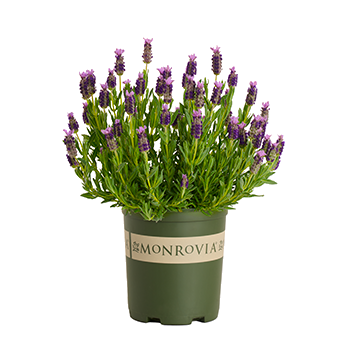Plant Health and Safety
Monrovia is committed to growing the healthiest plants and making a positive impact on the environment. We achieve this through growing practices based primarily on natural processes. Recently, as part of our continuous improvement process, we have reviewed our methods of pest management. News about bee health has prompted increased attention on neonicotinoids in particular. We are concerned about the health of our planet’s environment and take our commitment to stewardship seriously. We believe a healthy pollinator population is important to our environment, and grow thousands of plants to maintain habitats and food sources for pollinators. We approach the use of any chemicals by balancing three very important goals:
- Keeping humans safe
- Enhancing the health of our plants
- Reducing or eliminating any potential impact to non-harmful organisms, including bees, butterflies, and other pollinators
Over the years, Monrovia has reduced our overall pesticide use, and replaced certain dangerous pesticides as safer alternatives emerge. For instance, we have completely eliminated use of neonicotinoids. We utilize an integrated pest management system that includes the use of beneficial insects and other cultural controls. We strive to prevent pest infestations at our nurseries through vigilant scouting, and are leaders in the growth of natural, pest-resistant varieties. We currently use pesticides only as needed, or required by state or federal shipping regulations. Anytime we use pesticides, we follow stringent and conservative guidelines, and continue to look for more ways to reduce our pesticide use. We are constantly reviewing and refining methods to ensure we’re using the safest and most effective practices and products. This ongoing review includes:
- Monitoring research about the health of bees and other pollinators.
- Increased sharing of IPM and beneficial insect techniques among our nurseries.
- Tracking pesticide used per nursery, and making a commitment to overall reductions in their use.
- Testing new, potentially safer pesticide products and methods as they become available.
- Continued dialogue with our customers, consumers, and stakeholder organizations on this issue.
For your convenience we have included links to external articles and policies on the subject. We will update these often.
- http://www.nytimes.com/2016/02/27/science/decline-of-species-that-pollinate-poses-a-threat-to-global-food-supply-report-warns.html
- http://www.usnews.com/news/politics/articles/2016-01-06/apnewsbreak-epa-says-pesticide-harms-bees-in-some-cases
- http://rspb.royalsocietypublishing.org/content/royprsb/281/1786/20140558.full.pdf




